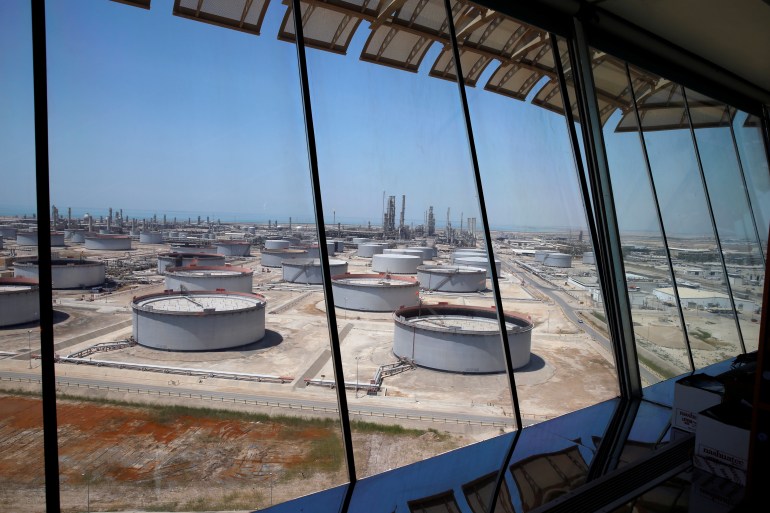Oil prices witnessed a noticeable increase thanks to the agreement of the "OPEC Plus" (+ opec) countries to extend the production cut, increase global demand, and the economies recover from the Corona pandemic, and this rise is in the interest of the oil-rich Gulf Cooperation Council countries;
But how can Gulf states take advantage of this boom?
In a report published by the American Bloomberg site, Karen Young, a researcher at the American Institute for Public Policy Research, says that - despite the current rise - we should not expect prices to reach the record rates they recorded in the past, specifically between 2003 and 2014.
Although the price per barrel reached $ 70, this does not achieve the required financial balance in the Arab Gulf states, especially with the widening gap between revenues and expenditures since 2015.
According to experts, Saudi Arabia is counting on not renewing competition with US shale oil, and this means that they can focus on their market share and strengthen relations with major Asian customers without fear of a return to production in the United States to its previous levels in light of the Biden administration's policies. Supports the transition towards alternative energies.
turning point
According to the author, the world is gradually approaching an "energy inflection point", as markets witness an abundance of oil supplies, with demand expected to reach its peak in 2030, and renewable energy projects evolve to reach high competitive levels.
In light of these data, the future of the Gulf Cooperation Council’s oil economies appears ambiguous, especially since these countries have not been able - according to the author - to achieve the set development goals, which directly affects the expectations of citizens in the labor market.
In the short term, if the provisions of the OPEC Plus agreement to reduce production continue to be implemented, oil prices will remain in the range of $ 70 per barrel during 2021, and a boom in revenues will be achieved for the Gulf states;
But at different rates.
Qatar, Bahrain and Oman will achieve higher benefits in light of higher prices, however, Bahrain and Oman are unlikely to avoid fiscal deficits this year even under strict budget control measures, and budget deficits are expected to persist in Saudi Arabia and Kuwait.
Over the past six years, the deficit was filled by loans, and borrowing rates continued at a higher rate in 2020, with bond issuance in the Gulf countries rising by 35% compared to 2019.
It is expected that the Gulf states will double spending in strategic areas in anticipation of the post-oil phase (Reuters)
Take advantage of higher prices
The author believes that the significant rise in prices will increase pressure on Gulf governments to provide more financial support and take additional measures to overcome the effects of the Corona pandemic.
It will be important - in her view - to see how the GCC countries will use the current boom in oil prices to achieve their strategic goals in the Middle East and Africa, and how successful they are in linking new partnerships with countries such as India and China.
The author believes that Saudi Arabia and the rest of the influential members of OPEC Plus will work to benefit from the current situation by preventing countries such as Iran, Iraq, Libya and Venezuela from raising production, and the Kingdom will primarily focus on standing in the way of Iran's economic and political rehabilitation.
She adds that in the medium term, controlling energy markets, not just oil, will become a strategic necessity, and the best way to invest any future gains, and for the Saudis, this means building refineries in a country like India, chemical plants in Texas, in addition to developing the natural gas sector. Liquefied and green hydrogen technology.
It is expected that the Gulf states will double spending in strategic areas in anticipation of the post-oil phase, and allocate part of the oil revenues to create immediate job opportunities and support the private sector.
Smaller and less populated Gulf Cooperation Council states will have a competitive advantage in labor markets, as they will be better able to attract highly skilled foreign workers.

